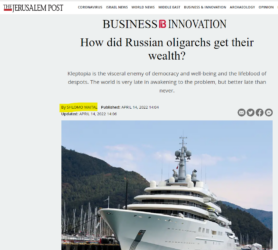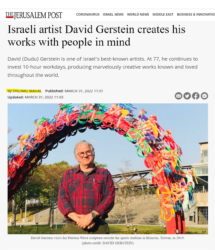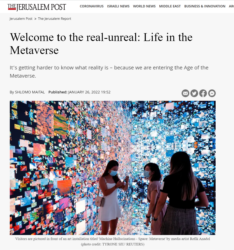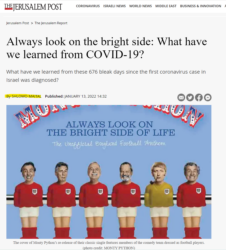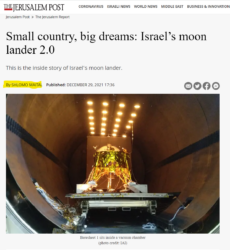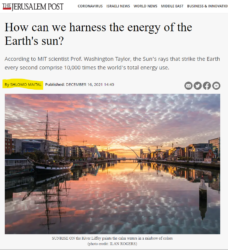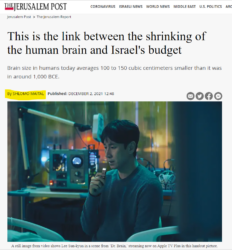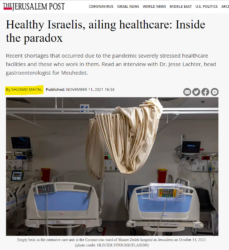Latest Insights search
How did Russian oligarchs get their wealth?
Kleptopia is the visceral enemy of democracy and well-being and the lifeblood of despots.
The world is very late in awakening to the problem, but better late than never.
Prof. Shlomo Maital explains how the Russian oligarchs obtained their wealth.
Israeli artist David Gerstein creates his works with people in mind
David (Dudu) Gerstein is one of Israel’s best-known artists. At 77, he continues to invest 10-hour workdays, producing marvelously creative works known and loved throughout the world.
Welcome to the real-unreal: Life in the Metaverse
Prof. Shlomo Maital is getting real with Metaverse, trying to understand whether it’s good for humanity – or bad…
Always look on the bright side: What have we learned from COVID-19?
Prof. Shlomo Maital reflects on the Monty Python’s song while reflecting on the wrenching two years we’ve been through since the first case of COVID-19 was diagnosed in Israel, concluding with the proven benefits of optimism as a key driver of resilience.
See or Be? Contact with nature and well-being during COVID-19 lockdown
Keren Kaplan-Mintz, Ofira Ayalon, Orly Nathan, Tzipi Eshet
Small country, big dreams: Israel’s moon lander 2.0
Prof. Shlomo Maital brings us the inside story of Israel’s moon lander
How can we harness the energy of the Earth’s sun?
The world has an enormous appetite for energy – and it is growing.
According to MIT scientist Prof. Washington Taylor, the Sun’s rays that strike the Earth every second comprise 10,000 times the world’s total energy use.
Prof. Shlomo Maital interviews Eran Tal, Co-founder of Volta Solar, to ask him how they harness the Israeli sun.
This is the link between the shrinking of the human brain and Israel’s budget
Brain size in humans today averages 100 to 150 cubic centimeters smaller than it was in around 1,000 BCE.
Prof. Shlomo Maital explains why our brains shrank, how it is possible to know that they shrank, and what is the connection to ants and the Israeli budget.
Healthy Israelis, ailing healthcare: Inside the paradox
Recent shortages that occurred due to the pandemic severely stressed healthcare facilities and those who work in them.
Prof. Shlomo Maital interviews Dr. Jesse Lachter, head gastroenterologist for Meuhedet.

